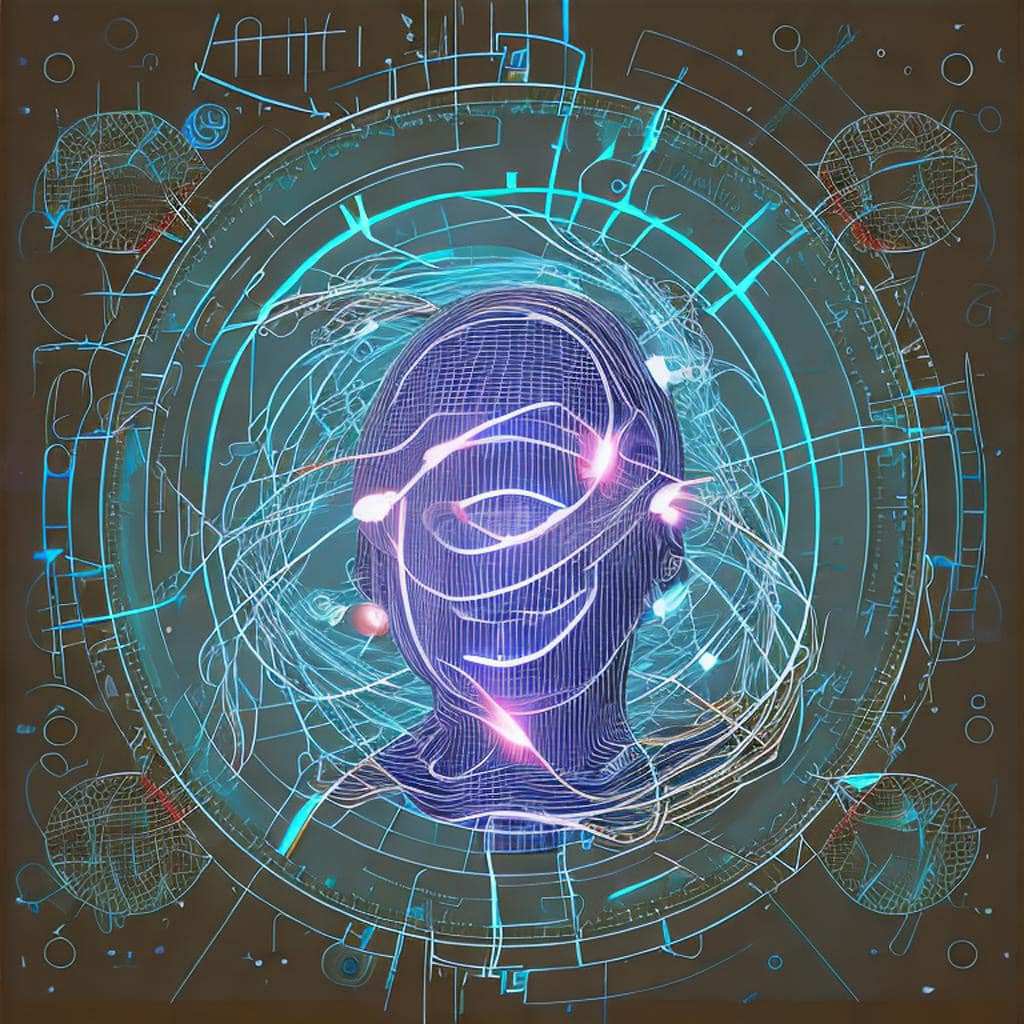Q&A regarding AI, Quantum Mechanics and their intersection
AI
What ethical considerations should be taken into account when developing AI systems?
Ethical considerations in developing AI systems include ensuring fairness, transparency, and accountability in decision-making, as well as protecting privacy and security. AI should be developed in ways that minimize bias and discrimination, and that uphold human values and rights.
How can AI be used to address real-world problems, such as climate change or healthcare?
AI can be used to address real-world problems such as climate change or healthcare by analyzing large datasets and identifying patterns or trends that can inform decision-making or improve outcomes. For example, AI can be used to optimize energy usage or to develop personalized medical treatments.
What are some potential risks and benefits of using AI in decision-making processes?
Potential risks of using AI in decision-making processes include the potential for bias and discrimination, as well as the risk of errors or unintended consequences. Benefits include increased efficiency and accuracy in decision-making, as well as the ability to process and analyze large amounts of data.
How can AI be used to improve education or training?
AI can be used to improve education or training by providing personalized learning experiences or by automating administrative tasks. For example, AI-powered chatbots can provide instant feedback and support to students.
What are some challenges in developing AI that can effectively interact with humans and understand natural language?
Challenges in developing AI that can effectively interact with humans and understand natural language include developing robust natural language processing algorithms and ensuring that AI systems are able to understand the context and nuances of human communication.
Quantum Mechanics
What are some practical applications of quantum mechanics, and how might they affect our everyday lives?
Practical applications of quantum mechanics include quantum computing, quantum cryptography, and quantum sensing. Quantum technologies have the potential to revolutionize computing, secure communication, and precision measurement.
What are some of the biggest unanswered questions in quantum mechanics?
Unanswered questions in quantum mechanics include the nature of dark matter and dark energy, the relationship between gravity and quantum mechanics, and the interpretation of the wave function.
What are some of the most promising theoretical frameworks for understanding quantum mechanics?
Promising theoretical frameworks for understanding quantum mechanics include the Copenhagen interpretation, the many-worlds interpretation, and the pilot-wave theory.
What is the relationship between quantum mechanics and classical physics, and how can we reconcile the two?
The relationship between quantum mechanics and classical physics is complex and still not fully understood. The two theories are often incompatible, and reconciling them is an active area of research.
What are some potential implications of quantum mechanics for fields such as cryptography or computing?
Potential implications of quantum mechanics for fields such as cryptography or computing include the ability to perform calculations that are infeasible using classical computers, as well as the potential for highly secure communication.
Intersection of AI and quantum mechanics
How can quantum computing be used to enhance AI algorithms, such as machine learning?
Quantum computing can enhance AI algorithms by allowing for faster and more efficient processing of large datasets. Quantum machine learning algorithms can potentially outperform classical approaches in certain domains.
What are some examples of quantum-inspired machine learning algorithms, and how do they compare to classical approaches?
Examples of quantum-inspired machine learning algorithms include quantum neural networks and quantum support vector machines. These algorithms exploit the unique properties of quantum systems to improve performance.
How can quantum mechanics be used to optimize AI systems and improve their performance?
Quantum mechanics can be used to optimize AI systems by improving algorithms for optimization and search. For example, quantum annealing can be used to find the optimal solution to complex optimization problems.
What are some of the challenges in developing quantum-enhanced AI algorithms, and how can they be overcome?
Challenges in developing quantum-enhanced AI algorithms include the difficulty of creating stable and scalable quantum computing systems, as well as the need for new algorithms that can exploit the unique properties of quantum systems.
What are some of the potential applications of quantum-enhanced AI, and how might they transform various fields such as healthcare or finance?
Potential applications of quantum-enhanced AI include drug discovery, financial modeling, and optimizing energy usage. These applications have the potential to transform various fields and improve outcomes in numerous areas.
Questions and answers related to AI, quantum mechanics, and their intersection
| Topic | Question | Answer |
| AI | Ethical considerations | Ensuring fairness, transparency, and accountability in decision-making, protecting privacy and security, and upholding human values and rights. |
| AI | Addressing real-world problems | By analyzing large datasets and identifying patterns or trends that can inform decision-making or improve outcomes. |
| AI | Risks and benefits of using AI in decision-making | Risk of bias and discrimination, potential for errors or unintended consequences, increased efficiency and accuracy in decision-making, ability to process and analyze large amounts of data. |
| AI | Improving education or training | Providing personalized learning experiences or automating administrative tasks. |
| AI | Challenges in AI systems that can effectively interact with humans | Developing robust natural language processing algorithms and ensuring that AI systems understand the context and nuances of human communication. |
| Quantum Mechanics | Practical applications | Quantum computing, quantum cryptography, and quantum sensing. |
| Quantum Mechanics | Unanswered questions | Nature of dark matter and dark energy, relationship between gravity and quantum mechanics, interpretation of the wave function. |
| Quantum Mechanics | Promising theoretical frameworks | Copenhagen interpretation, many-worlds interpretation, pilot-wave theory. |
| Quantum Mechanics | Relationship with classical physics | Complex and still not fully understood. |
| Quantum Mechanics | Implications for cryptography and computing | Ability to perform calculations that are infeasible using classical computers, potential for highly secure communication. |
| Intersection of AI and Quantum Mechanics | Enhancing AI algorithms with quantum computing | Faster and more efficient processing of large datasets, potential for outperforming classical approaches. |
| Intersection of AI and Quantum Mechanics | Examples of quantum-inspired machine learning algorithms | Quantum neural networks, quantum support vector machines. |
| Intersection of AI and Quantum Mechanics | Using quantum mechanics to optimize AI systems | Improving algorithms for optimization and search using quantum annealing. |
| Intersection of AI and Quantum Mechanics | Challenges in developing quantum-enhanced AI algorithms | Difficulty of creating stable and scalable quantum computing systems, need for new algorithms that can exploit the unique properties of quantum systems. |
| Intersection of AI and Quantum Mechanics | Potential applications of quantum-enhanced AI | Drug discovery, financial modeling, optimizing energy usage, transforming various fields and improving outcomes in numerous areas. |

Thank you for questions, shares and comments!
Share your thoughts or questions in the comments below!
Text with help of openAI’s ChatGPT Laguage Models & Fleeky – Images with help of Picsart & MIB






